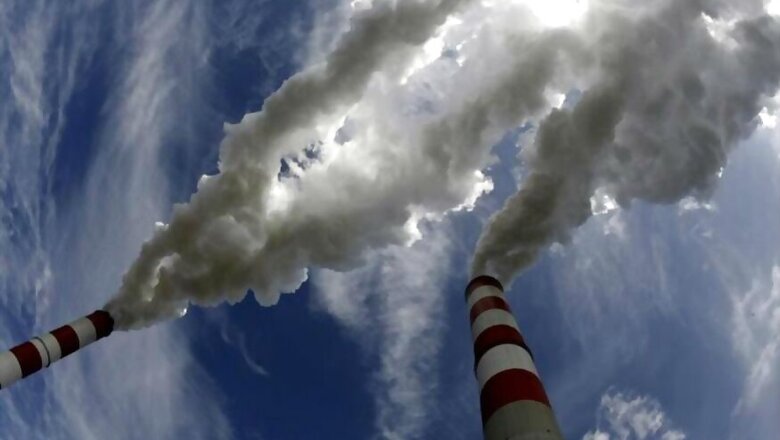
views
Washington: At $70 per ton of carbon dioxide, a carbon tax would be the most efficient means of cutting greenhouse gas emissions, according to an International Monetary Fund report published Friday.
But for the moment, carbon taxes remain unpopular, particularly in France, where plans to increase it to 55 euros (or USD 61.60) from 44.60 euros recently ignited the Yellow Vest protest movement.
The French government was forced to suspend the plan in the face of popular revolt.
The Paris Agreement, adopted in 2015 by more than 200 countries, aims to cap overall increases in global temperatures at two degrees centigrade above the pre-industrial era.
"The 2C target would require cutting emissions by roughly a third by 2030 and a global carbon price of around $70 per ton," IMF Managing Director Christine Lagarde and Vitor Gaspar, the fund's head of fiscal affairs, said in a joint blog post.
"There is a growing consensus that carbon pricing... is the single most effective mitigation instrument," they said.
It allows for a reduction in energy consumption, favours cleaner energies and mobilizes private financing, according to the IMF.
"It also provides much-needed revenues," they said, adding that countries could use that income to finance sustainable and more inclusive growth.
In the report, the IMF said that in China, the world's largest emitter, and in India or South Africa, countries which rely heavily on coal, a carbon tax of just USD 35 per ton would cut emissions by 30 per cent.
But in nine countries that use little coal, such as Ivory Coast, Costa Rica or France, the result would be a reduction of only 10 per cent.




















Comments
0 comment